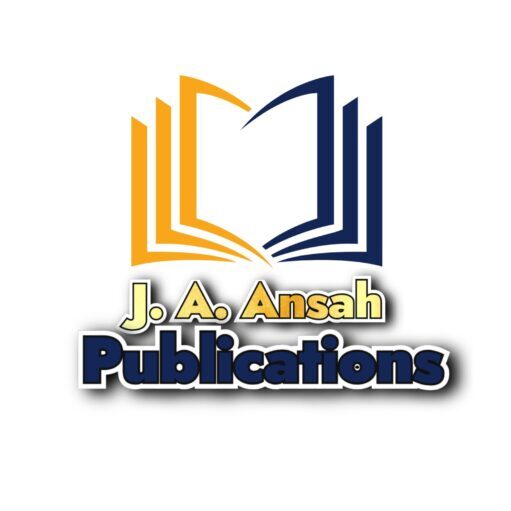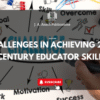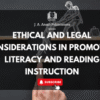CHALLENGES IN ACHIEVING 21ST-CENTURY EDUCATOR SKILLS II

Mental Health Challenges and Burnout
The growing demands on educators, from managing technology integration to meeting diverse student needs, can cause stress and burnout.
- Impact: High stress levels impair teachers’ ability to model mindfulness, emotional intelligence or adaptability.
- Solutions: Schools should prioritise teacher well-being by offering counselling services, fostering supportive leadership, and reducing administrative burdens.
Difficulty in Data Utilisation
Though data-driven decision-making is critical, many teachers feel overwhelmed by the volume of data or lack the training to interpret and apply it effectively.
- Impact: Misinterpretation or underutilisation of data can result in poorly targeted interventions or missed opportunities for student growth.
- Solutions: Simplifying data analysis tools and delivering hands-on training can empower educators to make better use of analytics.
Balancing Innovation with Curriculum Standards
The pressure to meet standardised testing benchmarks or strict curricula can stifle creativity and innovation in the classroom.
- Impact: Teachers may feel constrained, leading to less experimentation with project-based learning, gamification or interdisciplinary approaches.
- Solutions: Policy reforms that prioritise holistic learning over standardised testing can make room for innovation.
Fragmentation in Collaboration
Collaboration among educators, families and communities can be stalled by logistical issues, lack of trust or differing priorities.
- Impact: Fragmentation limits the collective efforts needed to create holistic and supportive learning environments.
- Solutions: Building strong professional learning communities (PLCs) and fostering transparent communication with stakeholders can enhance collaboration.
Ethical Dilemmas in Technology Use
The rapid adoption of technology raises ethical concerns, such as data privacy, digital addiction and the misuse of online platforms.
- Impact: Mismanagement of these ethical issues can harm students, dent trust or lead to legal challenges.
- Solutions: Providing clear procedures and training on digital ethics guarantees that educators and students navigate the digital landscape responsibly.
Rapid Evolution of Skills
The fast stride in technological and educational advancements means that skills learned today may become outdated tomorrow.
- Impact: Educators may feel they are eternally behind, which can lead to frustration and a lack of confidence.
- Solutions: Emphasising foundational skills like adaptability, lifelong learning and critical thinking can help teachers stay relevant amid change.
Final Thoughts
Achieving the skills of a 21st-century educator is an intricate yet rewarding endeavour. Overcoming challenges such as technology inequity, high workloads and resistance to change, among others requires systemic reforms, institutional support and individual commitment. By addressing these barriers, educators can be empowered to meet the demands of modern education and ensure their students thrive in a fast-changing world.
Sources
- Darling-Hammond, L. (2017). Empowered Educators: How High-Performing Systems Shape Teaching Quality Around the World. Jossey-Bass.
- Ertmer, P. A., & Ottenbreit-Leftwich, A. T. (2010). Teacher technology change: How knowledge, confidence, beliefs, and culture intersect. Journal of Research on Technology in Education, 42(3), 255–284.
- Goleman, D. (1995). Emotional Intelligence: Why It Can Matter More Than IQ. Bantam Books.
- Hargreaves, A., & Fullan, M. (2012). Professional Capital: Transforming Teaching in Every School. Teachers College Press.
- Ladson-Billings, G. (1995). Toward a theory of culturally relevant pedagogy. American Educational Research Journal, 32(3), 465–491.
- Robinson, K. (2011). Out of Our Minds: Learning to Be Creative. Capstone Publishing.
- Voogt, J., Erstad, O., Dede, C., & Mishra, P. (2013). Challenges to learning and schooling in the digital networked world of the 21st century. Journal of Computer Assisted Learning, 29(5), 403–413.


